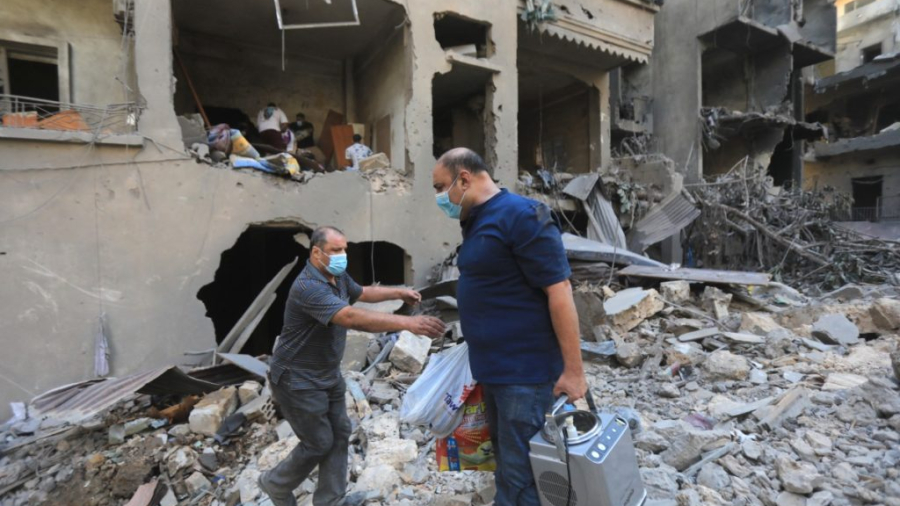Israel conducted airstrikes on eastern Lebanon on Tuesday amid heightened tensions following Prime Minister Benjamin Netanyahu’s vow to show “no mercy” to Hezbollah.
This development comes after the Iran-backed group’s drone attack on an Israeli base killed four soldiers, and left another 60 wounded, according to volunteer rescuers.
“We will continue to mercilessly strike Hezbollah in all parts of Lebanon — including Beirut,” Netanyahu declared during a visit to the base near Binyamina, south of Haifa.
On Tuesday, Hezbollah reported that its fighters engaged Israeli troops attempting to infiltrate the outskirts of Rab Tlatin, a Lebanese village. The group also claimed responsibility for launching missiles at Israeli soldiers and rockets toward northern Israel. Israeli military sirens blared near the border as hostilities intensified.
The Israeli Defense Forces announced they had “eliminated dozens of terrorists in close-quarters combat” and continued airstrikes throughout the day. Since Israel’s military escalation in Lebanon last month, which included ground troop deployment, the conflict has claimed at least 1,315 lives, according to Lebanese health ministry figures.
Among the targets hit by Israeli airstrikes on Tuesday was a hospital in Baalbek, rendering it out of service, according to Lebanon’s official National News Agency (NNA). Nicolas Von Arx, the International Committee of the Red Cross’s regional director, called for the protection of health facilities, labeling the attacks on such infrastructure as “deeply worrying.”
Hezbollah, meanwhile, described its attacks as retaliatory and in support of Palestinian group Hamas, which initiated conflict with Israel in Gaza last October. Hezbollah said their recent “squadron of attack drones” was launched in response to Israeli airstrikes, including one last week that the Lebanese health ministry claimed killed at least 22 people in central Beirut.
The ongoing violence has displaced approximately 690,000 people in Lebanon, as reported by the International Organization for Migration. Israel has indicated that its objective is to push back Hezbollah forces and secure its northern border, hoping to allow the return of tens of thousands of people displaced by rocket fire since last year.
Concerns have also been raised about the impact of the conflict on the UN peacekeeping force (UNIFIL) stationed in Lebanon since 1978. Injuries sustained by peacekeepers have drawn “strong concerns” from the UN Security Council, which for the first time addressed the matter publicly on Monday. Despite Netanyahu’s request for UN peacekeepers to evacuate, Jean-Pierre Lacroix, the UN peacekeeping chief, stated that UNIFIL would remain in place.
The conflict has also exacerbated the humanitarian crisis in Gaza, where Israeli forces continue to engage in military operations against Hamas. Israeli retaliatory strikes in Gaza have resulted in over 42,000 deaths, predominantly civilians, according to figures from Gaza’s health ministry, which the UN has deemed reliable.
The unrest is also impacting the occupied West Bank, where Israeli forces have reportedly killed hundreds of Palestinians since the Gaza conflict began, with two more fatalities recorded in Jenin on Monday.
Amid escalating violence, regional powers are engaging in diplomatic efforts. Iran, a key supporter of Hezbollah and Hamas, has been actively meeting with regional allies, including Yemen’s Huthi movement, while Jordan’s King Abdullah II warned of the potential for a “costly regional war” during a meeting with Lebanon’s Prime Minister Najib Mikati.
In response to a missile attack from Iran on October 1, allegedly launched in retaliation for Israel’s targeting of Iranian-aligned militant leaders, Israel is reportedly considering countermeasures that could involve targeting Iranian military sites, though not nuclear or oil facilities, according to US media.
